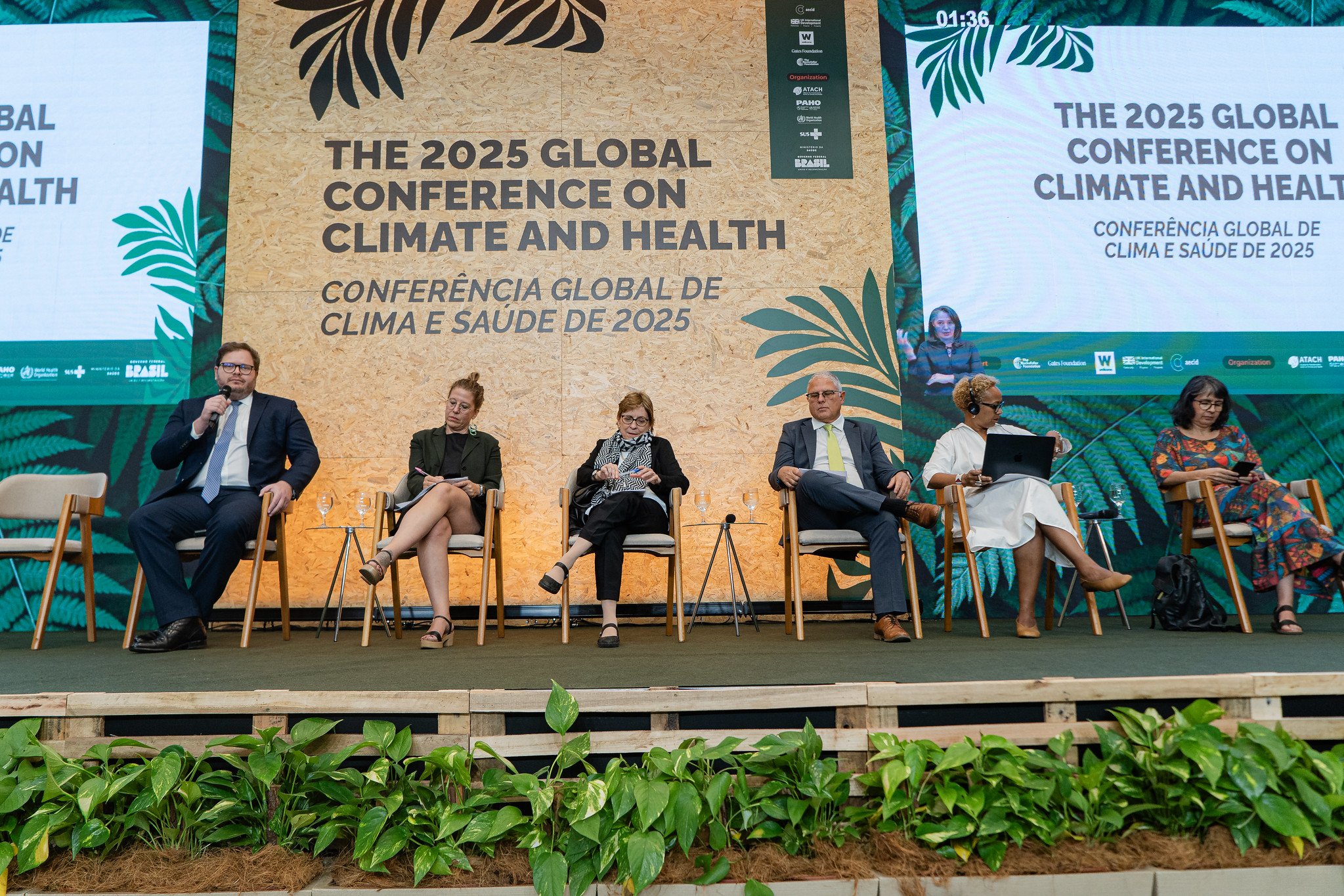Health cannot be a "footnote" at COP30, Global Alliance advocates
At the close of the Global Conference on Climate and Health, representatives from various sectors emphasized that negotiations must include the impacts of climate change on healthcare systems, particularly in the adaptation debate
By Mayara Souto / COP30

On Thursday, July 31, in Brasilia, Brasil, at the close of the Global Conference on Climate and Health, Jess Beagley, a policy lead of the Global Climate and Health Alliance (GCHA), said, "Health is not just a footnote." Her statement summed up the event's main message. Representatives from the Brazilian government, civil society, the World Health Organization (WHO), the Pan American Health Organization (PAHO), the United Nations Framework Convention on Climate Change (UNFCCC), Alliance for Action on Climate Change and Health (ATACH) and other institutions gathered at the conference.
During the conference, participants discussed the impact of climate change on public health and advocated for this issue to take center stage at COP30. This was the focus of Ms. Beagley's speech.
"Climate change, as we all know, is the greatest threat to human health. Therefore, we must do our part to ensure climate decision-making is as ambitious as possible. These decisions are made in UNFCCC negotiations on topics such as adaptation, mitigation, loss and damage, and finance. Health must be integrated into all areas of decision-making," she stressed.
Adaptation
According to the GCHA leader, adaptation is the first area of climate negotiations where health concerns become explicit. People are already experiencing the impacts of extreme events, such as floods, droughts, and heat waves. This issue will be a priority at COP30, where the creation of global adaptation indicators, including health metrics, will be initiated.
“We can have the best health indicators in the world, but unless we have funding, technology transfer, and training to implement the necessary actions, they will be completely redundant. Even with current levels of warming, healthcare systems face challenges. We do not know what it would be like [with global warming] at 2°C. How do we start planning for 3°C? For this reason, it is vital that we control emissions reductions," Beagley warned, referring to the Paris Agreement, in which signatory nations agreed to limit global warming to 1.5°C.
The global debate on climate adaptation and health should be strengthened by national commitments with public participation, according to Elena Villalobos Prats, representative of ATACH and the WHO. "Our goal is to ensure implementation at the national level. We will work closely with Brasil to develop indicators that allow us to realize the important declarations we've heard today and incorporate the experiences of Indigenous and Black communities so that we can move toward more tangible action”, said Prats.
Mr. Cristian Morales, PAHO's representative in Brasil, emphasized that the Global Conference on Climate and Health was a political and technical milestone that allowed the country to demonstrate its dedication to the principles of equity and universality of Brasil’s Unified Health System (Sistema Único de Saúde/SUS) by taking concrete steps to adapt to and mitigate the effects of climate change. He also expressed concern about funding to protect healthcare systems. "Health must be at the center of global strategies; especially since less than 1% of climate funding is currently allocated to health. COP30 is a historic opportunity to change that," he said.
Ms. Inamara Melo, General Coordinator for Adaptation at the National Secretariat for Climate Change of the Ministry of Environment and Climate Change (Ministério de Meio Ambiente e Mudança do Clima/MMA), also highlighted Brasil’s leading role in the climate adaptation agenda. She announced that Brasil’s national plan on the topic will be unveiled at the pre-COP, which will take place on October 13 and 14 in Brasilia.
Belém Action Plan
Regarding the inclusion of health in the COP30 discussions, Mr. Igor Barbosa, Head of the Global Climate Division at Brasil’s Ministry of Foreign Affairs (Ministério de Relações Exteriores/MRE), reaffirmed the country's commitment to the agenda. "Health is one of the priority topics of the Belém meeting, and without a doubt, we will have a key document—the Belém Action Plan. We will hold consultations in Geneva and we will also participate in events in Belém so that the plan establishes clear goals for addressing adaptation concerning health and climate change," said the MRE representative.
The Belém Action Plan is already being drafted and will receive contributions until COP30. The document aims to establish measures for strengthening climate-resilient healthcare systems as a global reference.
